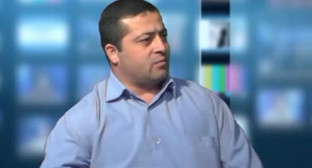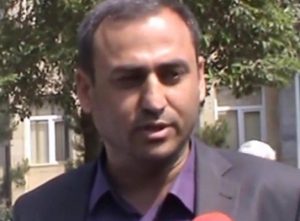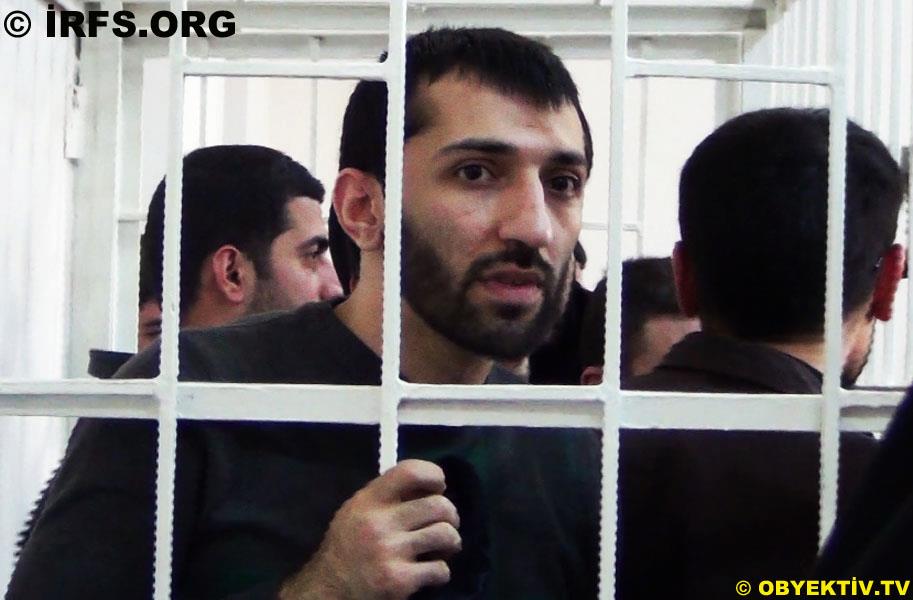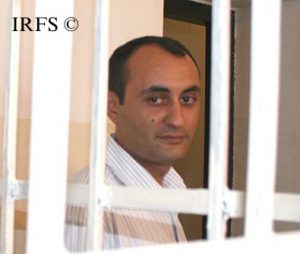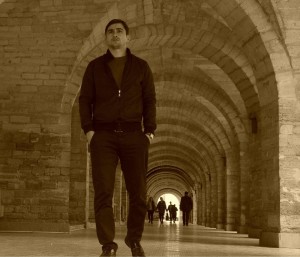07 Apr 17 | Digital Freedom, Mapping Media Freedom, News and features
[vc_row][vc_column][vc_column_text]
Each week, Index on Censorship’s Mapping Media Freedom project verifies threats, violations and limitations faced by the media throughout the European Union and neighbouring countries. Here are recent reports that give us cause for concern.
According to a document published on the state-run website of legal information, on 28 March, Vladimir Putin signed a new law that restricts coverage of court sessions. The law forbids taking photos and recording video during hearings, as well as any other form of recording without a judge’s permission. Streaming from pre-trial procedures is also forbidden.
If there is a recording of the hearing of any kind, a note regarding that fact along with the names of all media involved must be included in the minutes of said hearing. Prior to the law, journalists were not required to seek permission to film and take photos at open court hearings. The same applied for pre-trial live streaming.
The 2012 Resolution of the Supreme Court, which guaranteed journalists the right to publish live text updates, will not be changed by the new law.
On 3 April, press agency Beta reported that Serbian Prime Minister Aleksandar Vucic was accused of controlling the mainstream media during his presidential election campaign. Critics are accusing the prime minister of rigging the elections by keeping a strong grip on the media in the country.
Vucic, who was elected President on Sunday, April 2nd, was also accused of orchestrating a smear campaign against his competitors. Nedim Sejdinovic, the president of the Independent Journalist Association of Vojvodina, said the elections were irregular due to a “media blackout”.
“When the government dominates the media with the lynching of political opponents, it has nothing to do with free elections and democracy,” said Sejdinovic. “But only with totalitarianism.”
On 30 March, a staff member for Ozgur Toplum magazine by the name of Fahrettin Kilic was formally arrested on charges of “membership of a terrorist organisation”, reported pro-Kurdish news agency Dihaber.
Kilic was detained on March 28th along with two other journalists who have since been released on probation terms. The charges were merely based on a photograph featuring Kilic in a regional Kurdish outfit, stated the report.
According to independent Azadliq Radio, The Azerbaijan Service for Radio Free Europe, publishing house E-Q was shut down following tax inspections on 1 April.
The director of the publishing house, Akif Guliyev, said the decision was made after a series of unsubstantiated tax inspections along with various other inspections as well. E-Q was known for publishing Azadliq newspaper, which it stopped printing in August of 2016.
Vladimir Stolyarov, the owner and editor of the infotainment website gagster.ru, was detained at his home on March 26th, reported Stolyarov’s brother on the website.
“Today, at around 4pm police officers came into my brother’s flat with a detention warrant,” said the editor’s brother. “They have accused him of extremism and detained him because he posted a link to the live stream of the protests and set up streaming on his website.”
Later that day, Vladimir Stolyarov was released, also made known on the website by his brother. [/vc_column_text][/vc_column][/vc_row][vc_row][vc_column][vc_basic_grid post_type=”post” max_items=”4″ element_width=”6″ grid_id=”vc_gid:1491562871372-fe072c87-7117-6″ taxonomies=”6564″][/vc_column][/vc_row]
29 Mar 17 | Azerbaijan, Azerbaijan News, Digital Freedom, Mapping Media Freedom, News and features
[vc_row][vc_column][vc_column_text]
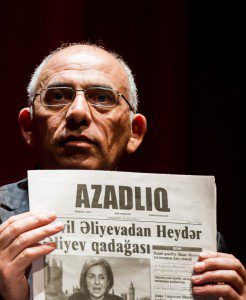
Rahim Haciyev, acting editor-in-chief of 2014 Index on Censorship Freedom of Expression Journalism Award-winning Azerbaijani newspaper Azadliq (Photo: Alex Brenner for Index on Censorship)
Civil, political and human rights are harshly restricted and frequently violated in Azerbaijan. Independent and critical journalists frequently find themselves — or their families — targeted.
Rahim Haciyev, acting editor in chief of the Index Award-winning independent newspaper Azadliq, was forced to flee Azerbaijan after years of official harassment. The government has repeatedly cracked-down on dissent.
Haciyev wrote to Index on Censorship from exile in a western European country:
I’m very sorry that the repressive policy of the Azerbaijani authorities against the Azadliq newspaper forced me to leave the country.
After the arrest of the newspaper’s financial director Faig Amirli, the authorities soon stopped issuing a print version. Amirli was arrested on obviously fabricated charges. I was summoned several times to the prosecutor’s office several times to testify about the paper’s financial affairs. The prosecutors said that this was connected with the criminal case of Amirli, but are invesitgating him under charges of “inciting religious hatred” and “violating the rights of citizens under the pretext of conducting religious rights”.
It turned out that they were interested in the financial issues of the newspaper in order to find a way to silence it. In addition, several employees of the newspaper were summoned for questioning. Then a court ordered tax authorities to comb through the paper’s financial activities. It’s clear that this was undertaken to increase pressure on the newspaper and me personally.
Aiming to cripple Azadliq, the government-owned distribution company was ordered to withhold circulation receipts — $84,000. So we weren’t able to print or even pay our bills. Three staffers are in prison — Seymur Hezi, Faig Amirli and Elchin. Each of them had sharply criticised the lawlessness and corruption of Azerbaijani officials.
In February, 11 Azadliq employees were summoned to the prosecutor’s offices to be interrogated again. Several government agencies increased their pressure on the newspaper’s online operation.
I had been warned twice in the past two years by the prosecutor general’s office that under my leadership Azadliq had been slandering Azerbaijani authorities. In their notices I was told that failure to comply with their terms would mean legal repercussions for me. But I refused. The newspaper continued to report on corruption, abuses of power and the absence of the rule of law. We were devoted to pursuing the truth.
And that is why the authorities intensified repression against the newspaper. Now this lawlessness has forced me to leave the country.
This decision was extremely difficult. I am cut off from my family and friends. I have two children and don’t know when I will see them again.
But despite all the problems I will continue to work daily for the newspaper’s website.
It’s my job, this is my job, this is my life.
Rahim Haciyev
Acting Editor-in-Chief, Azadliq
Haciyev is just one of the many journalists who have been targeted by Azerbaijani authorities in recent years. The country is ranked 163rd out of 180 countries in RSF’s 2016 World Press Freedom Index, which ranks 180 countries according to the level of freedom available to journalists. Almost everyone who speaks out against the regime of President Ilham Aliyev, including journalists, human rights defenders, activists and bloggers, are commonly imprisoned on spurious charges, such as drug and weapon possession, hooliganism and tax evasion. Reports of torture and abuse are typical by those being detained. At least 15 Azerbaijani prisoners of conscience currently remain in jail, including:[/vc_column_text][/vc_column][/vc_row][vc_row][vc_column width=”1/2″][vc_column_text]

Mehman Huseynov (Twitter)
Mehman Huseynov, an Azerbaijani journalist and pro-opposition blogger, was sentenced to two years in jail on 3 March by a Baku court for defaming the police chief of the city’s Nasimi district. Huseynov intends to appeal his sentencing. According to Front Line Defenders, a group of police officers violently attacked Huseynov on 9 January. The next he was brought to court, found guilty of disobeying police orders and fined 200 manat (£96). [/vc_column_text][/vc_column][vc_column width=”1/2″][vc_column_text]
Founder and editor of online news portal Kend.info Elchin Ismayilli was arrested on 17 February on charges of “extorting money” and “aggravated abuse of a position of influence”. According to the Caucasian Knot, he was also accused of blackmailing a local office, charges he insists were fabricated to silence his coverage of local corruption and human rights violations. On 18 February, Ismayilli was sentenced to a pre-trial detention period of 24 days. He has previously been subject to multiple arrests and cases of harassment related to his work as a journalist.[/vc_column_text][/vc_column][/vc_row][vc_row][vc_column width=”1/2″][vc_column_text]
On 3 March, a court decided to prolong the period of investigation of Faig Amirli for three months, the Azerbaijan Press Agency reported. Amirli, financial director of newspaper and assistant chairman of the Azerbaijani Popular Front Party (APFP), was arrested on 20 August 2016 for “inciting religious hatred” and “violating the rights of citizens under the pretext of conducting religious rights,” according to Radio Free Europe/Radio Liberty.[/vc_column_text][/vc_column][vc_column width=”1/2″][vc_column_text]
Writer and blogger Rashad Ramazanov was arrested on 9 May 2013 and sentenced to nine years in prison. According to English PEN, his charges included “illegal possession and sale of drugs”. Police claimed to have found nine grams of heroin on his body, although Ramazanov insists that the drugs were planted by the officers, who he claims also beat him up and tortured him during interrogation. Ramazanov was sentenced to nine years in prison in November 2013 on a trumped-up drug trafficking charge. PEN International reported that on 23 January Ramazanov was moved to solitary confinement for 15 days, the reason for which remains unknown. On 7 February Ramazanov was released from solitary confinement, and his family was given permission to visit him.[/vc_column_text][/vc_column][/vc_row][vc_row][vc_column width=”1/2″][vc_column_text]
Founder and editor of the website Azel, Afgan Sadygov, was sentenced on 12 January to 2.5 years in jail. Sadygov was arrested on 22 November 2016 based on accusations of “hooliganism” after he was attacked on 9 August 2016 and allegedly hit a woman, Contact Online news reported. Sadygov’s website often reports on issues such as poor infrastructure maintenance, bad quality of roads and waste of public funds in Azerbaijan’s Jalilabad region.[/vc_column_text][/vc_column][vc_column width=”1/2″][vc_column_text]
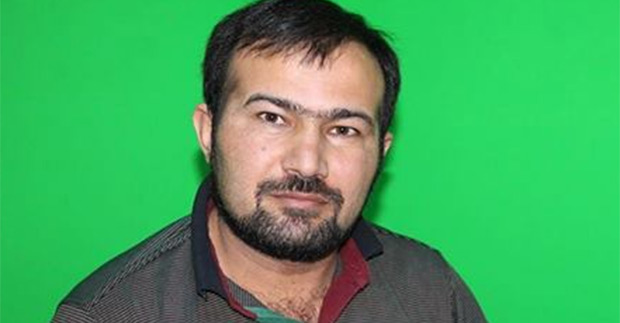
Seymur Hezi
According to MeydanTV, the Supreme Court will hear the appeal of Seymur Hezi, reporter for opposition news source Azadliq and presenter for critical TV program “Azerbaycan Saati” on 13 April. The journalist was sentenced to five years in prison on 29 January 2015 on a trumped-up charge of aggravated hooliganism, Index on Censorship reported. The charge came after Hezi was attacked on 29 August by Maherram Hasanov, a complete stranger, and defended himself. Hezi has accused President Ilham Aliyev and chief of staff Ramiz Mehdyev of ordering his arrest.[/vc_column_text][/vc_column][/vc_row][vc_row][vc_column width=”1/2″][vc_column_text]
The lawyer of Nijat Aliyev, former chief editor of religious website Azadxeber.org, has not been able to get hold of the text of the verdict of the Supreme Court of Azerbaijan for his client, Contact Online news reported. Aliyev’s lawyer believes that the delay has been intentional in order to prevent the filing of a complaint with the European Court of Human Rights, Contact Online news reported. According to IRFS, Aliyev was detained on 20 May 2012 and sentenced to 10 years in prison on 9 December 2013 on charges of illegal possession of drugs and weapons, incitement of religious hatred, calls to seize power and distributing banned religious literature. Aliyev’s website previously published criticisms of the government’s policies in regards to religion, the possibility of a LGBT parade in Baku and the allotment of too much funding for the Eurovision Song Contest in 2012, OCCRP reported.[/vc_column_text][/vc_column][vc_column width=”1/2″][vc_column_text]
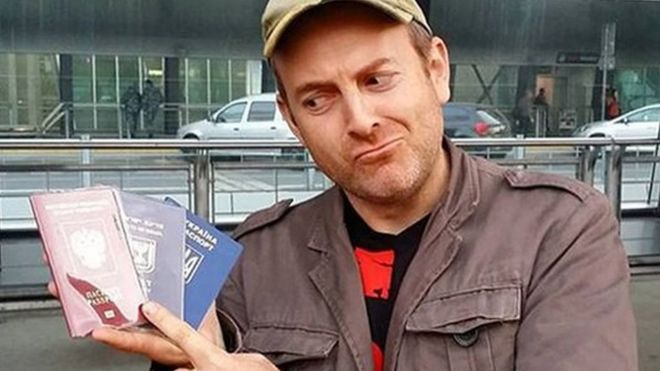
Alexander Lapshin (BBC)
Russian-Israeli travel blogger Alexander Lapshin was extradited from Belarus to Azerbaijan on 7 February. He faces up to five years in prison on charges of “public calls against the state” and “unauthorised crossing of borders,” according to Armenian News Agency ArmenPress. These charges came after Lapshin traveled to the disputed territory of Nagorno-Karabakh and sympathised in his blog entries with the Armenians he met, GlobalResearch reported. [/vc_column_text][/vc_column][/vc_row][vc_row][vc_column width=”1/2″][vc_column_text]
Fikrat Faramazoglu, editor-in-chief of news website jam.az, has been detained since 30 June 2016 on the charge of extortion by means of threats, which is punishable by up to five years in prison. According to Azerbaijan Free Expression Platform, these charges originated when a local restaurant owner accused Faramazoglu of extorting money from him when asked to remove defamatory articles about the restaurant on websites owned by the journalist.[/vc_column_text][/vc_column][vc_column width=”1/2″][vc_column_text]
Blogger and social media activist Abdul Abilov has been imprisoned since 22 November 2013. According to Azerbaijan Free Expression Platform, Abilov was charged with illegal possession, storage and manufacturing or sale of drugs when authorities claim to have found illegal drugs in his home and on his person, which Abilov continues to protest were planted on him. On 27 May 2014 Abilov was sentenced to five-and-a-half years in prison. Stop Sycophants!, the Facebook page previously run by Abilov, was shut down following his arrest, IRFS reported. The page was known to strongly criticise authorities.[/vc_column_text][/vc_column][/vc_row]
06 Mar 17 | Azerbaijan, Azerbaijan Statements, Campaigns, Campaigns -- Featured, Statements
[vc_row][vc_column][vc_column_text]The undersigned organisations condemn in the strongest possible terms Friday’s sentencing of Mehman Huseynov, Azerbaijani journalist and chairman of the country’s leading freedom of expression group, Institute for Reporters’ Freedom and Safety, to two years in jail on defamation charges. He was taken into custody from the courtroom, without being allowed to speak in his defence.
The 24 organisations are deeply concerned by the continued targeting of Mehman Huseynov and call on the Azerbaijani authorities to immediately and unconditionally release him and all other political prisoners, and to reverse the continuous clampdown on freedom of expression occurring in the country.
“Today’s sentencing and jailing of Mehman Huseynov is outrageous – another example of Azerbaijan’s best and brightest being targeted for expressing opinions critical of the ruling Aliyev regime. It also shows that nothing has changed since the release of a number of high-profile political prisoners last year. The revolving-door policy of politically motivated arrests is still very much in place. Huseynov is now one of at least 13 journalists, bloggers, and media workers jailed in Azerbaijan. They must all be immediately and unconditionally released, in accordance with Azerbaijan’s international obligations”, said Rebecca Vincent, UK Bureau Director for Reporters Without Borders.
Huseynov’s conviction stems from criminal defamation charges in a private case brought by the chief of the police department, related to a report he published in which he wrote about his experience of torture, after he was detained overnight by police in January,
Mehman Huseynov was detained in Baku on 9 January by plain clothed police officers and held incommunicado overnight. Huseynov has reported that while in police custody, police placed a sack over his head and used force against him. He was convicted of disobeying police orders; and although the Court released him on 10 January, he was fined, and continued to face police harassment. The court has imposed a formal travel ban on Huseynov who already has been deprived of his travel documents for the past five years.
”Mehman Huseynov`s case is emblematic of the abusive and arbitrary methods used to punish and attempt to silence human rights defenders, journalists and activists.

Mehman Huseynov (Twitter)
must be released immediately and unconditionally, he has to have compensation for torture and ill-treatment, and those who are responsible for torture and ill-treatment, regardless of their position, have to be brought to justice. The international community must act, given the continued and increased repression against human rights defenders, journalists and lawyers in Azerbaijan. The dire human rights situation in Azerbaijan deserves the highest attention and action at the Human Rights Council.”, says Florian Irminger, Head of Advocacy, Human Rights House Foundation.
”We are shocked and deeply distressed by this shameful verdict, which is nothing but a mockery of justice. Azerbaijani law-enforcement agencies have earned notorious reputations for using brutal and unlawful interrogation methods. Instead of investigating the credible torture claims, the authorities have chosen to jail the blogger”, says Gulnara Akhundova, Head of Global Response, International Media Support.
Notably, Mehman Huseynov has been critical of the appointment of first lady Mehriban Aliyeva to the post of the Vice President on 21 February 2017.
“Prior to the appointment of first lady Mehriban Aliyeva to the post of the Vice President on 21 February 2017, the Azerbaijani government has pursued a new wave of detentions and harassment of activists, journalists and bloggers, apparently aimed at consolidating the government’s authoritarian rule and preventing any dissent around the controversial appointment.” says Sasha Koulaeva, Head of Eastern Europe-Central Asia Desk, FIDH.
Detentions of Political Opposition
Ahead of the Vice-Presidential appointment, since the amendment was passed in September, authorities have arrested several representatives of the political opposition on false, politically-motivated charges, including ten members of Azerbaijan Popular Front Party, one member of the Republican Alternative Movement (REAL) and one member of the D18 movement.
There are credible allegations of torture and other cruel and degrading treatment of the detainees. For example, Rahim Shaliyev, a REAL Movement member detained on 20 February and subsequently sentenced to 30 days administrative detention on charges of resisting police, reported to his lawyer that he was subject to beatings and humiliation, resulting in an injury to his skull.
Crackdown on media
Journalists have also been subject to arbitrary detention and harassment. On 17 February 2017 Elchin Ismayilli, founder and editor of Kend.info, an on-line news portal known for its reporting on corruption and human rights violations in the Ismayilli region of Azerbaijan, was detained by police. He is accused of threatening a local government employee and has been charged with extortion and abuse of a position of influence. Ismayilli denies all the charges. On 18 February, the Nasimi District Court sentenced Ismayilli to pre-trial detention for an initial period of 24 days. Ismayilli is currently being held in the Kurdakhani pretrial detention centre.
On 22 February, cable TV channels stopped all the authorities officially suspended all broadcasts by the Turkish affiliate of FOX TV, after the channel aired a satirical discussion on the appointment of the new Vice President. A spokesperson for the National Television and Radio Council (NTRC) of Azerbaijan stated that this decision was made at the sole discretion of cable providers; however, anonymous sources within the cable providers have reported that they faced pressure from the NTRC to drop the channel.
At the same time, the authorities have continued their harassment of opposition newspaper Azadliq, which was forced to cease abandon print publication in September 2016, following ongoing financial pressures from state-owned or affiliated companies. In the second half of February 2017, over ten staff members were summoned and interrogated by the Serious Crimes Investigation Department. The publication’s Financial Director, Faiq Amirov, and prominent journalist, Symur Hezi, have been incarcerated on trumped up charges since August 2016 and August 2014, respectively.
Activists expressing critical views on the internet and social media, the last bastion of freedom of expression, have also been subject to police pressure, aimed at forcing them to delete dissenting posts. For example, on 21 February Nisakhanim Valiyeva, the Chair of the Classical Popular Front Party was held in police custody for four hours, the same day that Merhiban Aliyeva was appointed Vice President, and released only after deleting her critical Facebook posts about the appointment.
This has been accompanied by calls for increased regulation of the internet and online content. The chair of the Press Council Aflatun Amashov, whose official mandate is to safeguard independent media and rights of journalists, has submitted a proposal to the Milli Majlis (Parliament), calling for mandatory registration of bloggers and activists, aimed at ensuring greater control over those expressing themselves online.
Harassment of critics in exile
The government of Azerbaijan is also pursuing government critics living in exile abroad. Shortly after giving a speech at the European Parliament on the human rights situation in Azerbaijan on 6 February, Emin Milli, head of Meydan TV, a critical TV channel operating in exile from Berlin, reported to German Police receiving threats of physical violence from the Azerbaijani authorities.
“The Azerbaijani authorities persistently violate freedom of expression and other human rights, both at home and abroad”, said Katie Morris, Head of Europe and Central Asia at ARTICLE 19. “With this happening in their own backyard, European governments can no longer ignore the arrests, torture and harassment of government critics and their families and must call the Azerbaijan government to account”, she added.
Where the authorities are unable to reach their critics, they have sought to harass family remembers remaining in Azerbaijan. Most recently, on the 22nd of February, the brother Dadashov Khanlar and nephew Sabuhi Zanalov of Netherlands-based blogger Ordukhan Teymurkhan, known for his criticism of the Aliyevs, were sentenced to 30 days detention on entirely bogus charges of disobeying police orders.
We, the undersigned organisations, call on the government of Azerbaijan to cease its harassment and detention of government critics. Allegations of torture must be investigated, and all political prisoners must be immediately and unconditionally released.
The relentless campaign waged by the authorities against media workers, bloggers, political activists, civil society and others that are deemed to threaten the power of the ruling regime must stop immediately.
We also call on the international community to exert political pressure and take all the necessary measures until Azerbaijan fully honours its human rights commitments.
ARTICLE 19
CEE Bankwatch Network
Committee to Protect Journalists (CPJ)
Crude Accauntability
Eastern Partnership Civil Society Forum
FIDH – Indernational Federation for Human Rights
Freedom House
Freedom Now
Front Line Defenders
Helsinki Foundation for Human Rights
Human Rights First
Human Rights House Foundation
IFEX
Index on Censorship
International Media Support
International Partnership for Human Rights
Institute for Reporters’ Freedom and Safety
Netherlands Helsinki Committee
Norwegian Helsinki Committee
PEN International
People in Need
Polish Green Network
Reporters Without Borders (RSF)
World Organisation Against Torture (OMCT)[/vc_column_text][vc_row_inner equal_height=”yes” content_placement=”middle” css=”.vc_custom_1488907664556{margin-bottom: 25px !important;background-color: #dd3333 !important;}” el_class=”text_white”][vc_column_inner width=”1/2″][vc_custom_heading text=”Protect Media Freedom” font_container=”tag:p|font_size:28|text_align:left” use_theme_fonts=”yes” link=”url:https%3A%2F%2Fwww.indexoncensorship.org%2Fdefend-media-freedom-donate-index%2F|||”][vc_column_text]
Support Index’s work.
We monitor threats to press freedom, produce an award-winning magazine and publish work by censored writers.[/vc_column_text][/vc_column_inner][vc_column_inner width=”1/2″ css=”.vc_custom_1488907628643{background-image: url(https://www.indexoncensorship.org/wp-content/uploads/2013/08/newspapers.jpg?id=50885) !important;background-position: center !important;background-repeat: no-repeat !important;background-size: cover !important;}”][/vc_column_inner][/vc_row_inner][/vc_column][/vc_row][vc_row][vc_column][vc_basic_grid post_type=”post” max_items=”4″ element_width=”6″ grid_id=”vc_gid:1488907408421-e22a85a0-aabc-5″ taxonomies=”7145″][/vc_column][/vc_row]
27 Feb 17 | Mapping Media Freedom, News and features
[vc_row][vc_column][vc_column_text]
Each week, Index on Censorship’s Mapping Media Freedom project verifies threats, violations and limitations faced by the media throughout the European Union and neighbouring countries. Here are recent reports that give us cause for concern.
Independent journalist Elchin Ismayilli, who used to contribute to Cumhuriyet newspaper and Azerbaijani Saadi, was detained on 17 February on charges of extortion through intimidation and abuse of power, reported Azadliq Radio.
According to the journalist’s lawyer, Ismayilli is being charged for threatening an employee of the local culture and tourism department.
The journalist says the allegations are not true.
A month before, Ismayilli asked to borrow 1000AZN from the person who is allegedly accusing him of extortion. He was detained when picking up the money.
During a meeting with his lawyer, he explained he had known this individual since 2003 and that they had good relations.
In September he received a warning from the police on was called into questioning for allegedly assaulting an officer.
The journalist ties both incidents to his work.
The French police prevented freelance journalist Alexis Kraland from accessing a demonstration in Place de la République, in Paris, on 18 February, the journalist reported on Twitter and confirmed to Mapping Media Freedom.
Kraland was intending to cover a protest in solidarity with a young man called Theo, who was allegedly raped during a violent police arrest.
The police asked the journalist for his press card which is not necessary to cover a demonstration as a journalist, Kraland told Mapping Media Freedom.
The Federal Migration Service won its case against Demyan Kudryavtsev, owner of Independent Media, on 21 February, Vedomosti reported.
“It has been established that false data was deliberately submitted in this citizenship application. The Supreme Court acknowledged this”, the court’s press service stated.
FMS did not receive all the necessary data in the application submitted in 2009, Kudryavtsev told Novaya Gazeta.
The President or FMS is now able to deprive him of his citizenship based on the court decision.
New amendments to a 2014 law by the State Duma prohibit foreigners from establishing and owning more than 20 per cent of any Russian media outlet. If Kudryavtsev is deprived of his Russian citizenship, he will not be able to continue owning Vedomosti and other outlets under the Independent Media umbrella.
Hannah Machlin, project officer of the Mapping Media Freedom project, said: “The decision to take away Kudrayastev’s passport will affect the legality of his ownership of media outlets Vedmosti and the Moscow Times, making it a clear violation to press freedom”.
Özgür Gelecek daily’s Newsroom Editor Aslı Ceren Aslan was arrested on 21 February in Şanlıurfa province, Cumhuriyet newspaper reported.
Aslan, who was detained on 18 February, was allegedly subjected to physical violence and strip searched twice during her detention and arrest. Özgür Gelecek reported that Aslan was in Şanlıurfa to report on the recent developments in Syria at the time of her detention.
According to reports, the journalist was arrested on charges of “belonging to a terrorist organisation” and “violating Turkish borders.”
Her arrest brings the number of journalists in Turkish prisons to 154.
Boris Pejovic, a photographer for daily newspaper Vijesti, was insulted and pushed during a brawl on 15 February between MPs from the ruling Democratic Party of Socialists and the opposition Democratic Front in the Parliament of Montenegro, daily newspaper Vijesti reported.
As Vijesti reported, MPs and Parliament security pushed and insulted Pejovic.
Opposition leaders and supporters protested in front of Montenegro’s parliament after the ruling majority stripped two MPs of their immunity from prosecution over their alleged involvement in a coup attempt, Balkan Insight reported.
The incident was strongly condemned by the Trade Union of Media of Montenegro (SMCG).[/vc_column_text][/vc_column][/vc_row][vc_row][vc_column][vc_column_text]
Click on the bubbles to view reports or double-click to zoom in on specific regions. The full site can be accessed at https://mappingmediafreedom.org/
[/vc_column_text][/vc_column][/vc_row]




